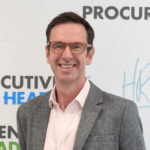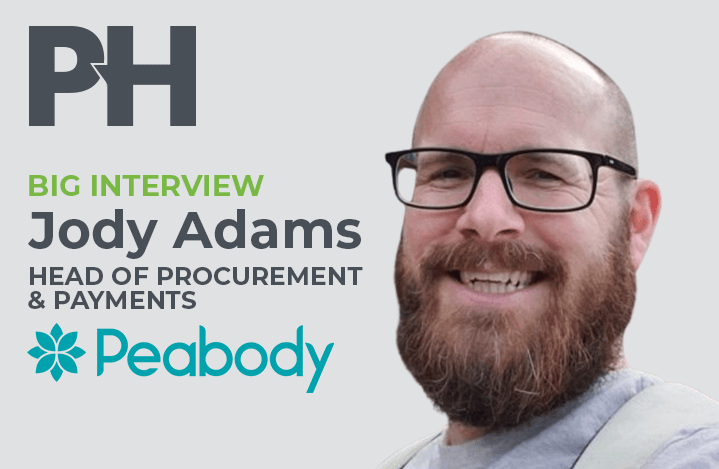For Procurement Heads‘ latest Big Interview, Neil spoke with Rupert Gaster to share more about his career.
How did you get into Procurement?
I wasn’t intentionally looking for a career in procurement, I started my career in retail and operational-based roles. It’s there that I discovered a real interest and passion for buying.
I then had the opportunity to go and join a start-up and that’s really where it all started. I found myself responsible for building the supply chain up from the bottom, learning on my feet with some great leadership and guidance around me, and absolutely loved it.
From there, I joined Foodbuy to build on those skills, to challenge myself, to work in a really professional environment with procurement at its core and use all of the skills I had learnt from my previous experience.
Was there a crossover of skills?
In previous roles, I had exposure to businesses of all shapes and sizes and I think, to become a well-rounded leader, you need that broad experience.
Before joining Foodbuy, I faced two choices:
- Stay on an operational path
- Or, choose a speciality like procurement
I think there is always going to be a crossover of key skills between different jobs and industries. I really enjoy the supplier relationship management element, and the opportunity to add value and push the boundaries of what’s possible – all of which also featured heavily in my retail and operations roles.
Most people assume procurement folk are “numbers guys”, but I’m a creative person at heart. It’s creativity that really helps me to solve challenges and create new opportunities.
What are the key focus areas in procurement right now?
If I had to pick one, aside from the obvious Covid-19 and pandemic-related focuses, it would have to be systems and data.
At Foodbuy, we have big ambitions around developing our approach to systems and data. We already believe we have a market-leading tool, but we cannot rest on our laurels. The pace of change over the last year has been incredible, so we need to constantly innovate so we can continue to deliver benefit across the procurement process.
Sustainability is of course a theme we have talked about for years, but now more than ever it is critical that we make a step change. We’re proud to have a strong sustainability agenda already, for instance we were the first food organisation to join the Buy Social Corporate Challenge which was spearheaded by a member of my team and has really driven us forward in that area.
Most recently, our biggest client and owner, Compass Group UK&I has made a climate promise, publishing a roadmap to climate Net Zero by 2030, so I’m really proud to be part of an organisation focused on driving positive change. Organisations working to create a more sustainable world is both critical and a theme that’s here to stay.
What inspires you most as a procurement leader?
In one word, it’s PEOPLE.
People are at the heart of our business. It’s people that make businesses successful and without great people, we don’t have a business.
What I love about Foodbuy is that everyone is really committed to moving the organisation forward. I like to think of Foodbuy as having a start-up type mentality and culture, but with the backing of a FTSE30 corporate – Compass Group.
Driven by the pandemic, mental health and wellbeing have a bigger focus than ever before, a real positive to come from the last 12 months. I believe we really do put this at the forefront of everything we do. We also have really strong charity partnerships, all of which help to make Foodbuy a great place to work. In fact, once a year, a dozen or so of the team cycled from London to Paris in 24 hours – in support of our charity partner Duchenne UK. We also run a number of fundraising activities that have raised hundreds of thousands of pounds over the years for these partners.
It’s also been great for galvanising the team – and I’m incredibly proud to be a part of that journey.
What are the biggest lessons you have learnt in procurement?
Number one: Build great relationships – with your team, suppliers, clients and stakeholders. And number two: Follow the process.
It sounds simple, but I’ve found if you follow those two rules, you’ve got a great chance of success!
What advice would you give someone embarking on a procurement career?
I would say: Just jump in!
My career evolved into procurement quite unintentionally, but I don’t regret it for a second. Procurement is all about building relationships, being curious and pushing the boundaries. If you’re inquisitive and like to explore the art of possible, then a career in procurement could be a really good fit.
What do you think are the current trends in procurement and what emerging roles do you think you will see as a result?
As we touched on, sustainability is a theme that is definitely here to stay and rightly so. And whilst managing cost is of course always key, the progress we make in this area is one that should remain in our ‘top three’ for many years to come.
Our supply chains have been tested unlike anything before throughout the pandemic and that’s before you even mention Brexit, so supply chain integrity and managing the risks around it is more front of mind than ever been before.
Elsewhere technology, data and the efficiencies this can bring are likely to become even bigger KPIs for procurement teams of the future.
What have been the main challenges you and your team have had to navigate through the pandemic?
There are a few, clearly the supply of critical goods and services.
Our client base is so diverse; from hospitals and care homes, to government offices, schools, key infrastructure sites and everything in between, many businesses remained trading and needed our support to ensure the continuity of supply through some of the toughest times.
Not only did we need to deal with ensuring continuity of supply, but also do that with increased demand on products we didn’t previously source in significant volumes – like hand sanitiser – so we needed to move at pace, prioritise and resource our teams appropriately.
The biggest challenge for me personally was moving at pace, whilst making big decisions with very little forecasting data. We had to hedge our bets on the right thing to do, those thankfully paid but it was certainly an interesting and challenging time.
Has Brexit been a source of disruption?
As the UK’s leading food procurement company, we were well prepared for Brexit. Even throughout the pandemic, we continued our contingency planning to ensure there was minimal disruption when Britain left the EU.
In the two years prior to that, we focused heavily on reducing our dependence on imported food and switched more and more of our deals to UK sourcing. Only a small proportion of our supply chain comes from the EU and the majority of those were non-perishable items.
Fast forward to today, our planning and preparation means we’ve not seen any real issues materialise. Of course, there are some small remaining challenges with freight and container movement costs and other considerations in the short-term, but on the whole, the impact has been minimal.

What do you do in your spare time?
I’m a big sports fan and when I can, I play squash three times a week. I’m in the middle of learning to play golf and I have two young daughters that keep me busy and entertained! We are also in the midst of a house renovation which has been very challenging but also kept us sane over the last six months!
Finally, if you could give advice to your younger self what would it be?
Three things:
- Be bolder
- Believe in yourself
- Take control of the agenda






